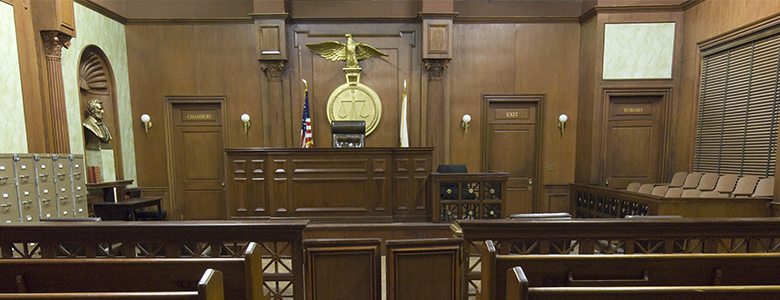
Getting Divorced in Chicago from Prison
By: M. Scott Gordon
Many Chicago area residents understand that, if they want to file for divorce, they need to take the initial steps required to begin the process. However, for individuals who are serving jail time and are incarcerated in the state of Illinois, it is not always so easy to have access to the courts—even when that needed access has nothing to do with the reason the person is serving a term of imprisonment. As a recent article in The Atlantic reveals, the “average prisoner has neither the power to compel transportation to court nor the money to hire an attorney.”
However, as the article explains, “one Chicago court may have found a fix.” The answer concerns technology in the courtroom and comments interestingly upon questions about equal access to the law.
Televisions, Cameras, and Technology Allow Chicago Inmates to File for Divorce
Most courtrooms do not permit people to come to court “virtually.” In other words, if you file for divorce or need to be in court for another reason, it is expected that you will appear in person. For anyone who is serving a criminal sentence and is incarcerated, getting to the courtroom can be a serious physical challenge. The article in The Atlantic begins with the story of one woman who testified in Cook County court about her desire for a divorce. She was not seeking spousal support, and she did not need to have any property she shared with her husband divided. To be sure, she was willing to waive such options because her husband “had an alcohol problem and had been abusive.” She testified that “her marriage was irretrievably broken,” in effect seeking a no-fault divorce.
This might sound like a commonplace scenario. What is distinct about this particular woman’s narrative, however, is that she was only present in court virtually. Indeed, the woman “was imprisoned 175 miles away.” Yet that fact did not stop Circuit Court Judge Grace Dickler from granting the divorce. Indeed, Dickler granted the divorce after hearing from the woman virtually. What do we mean by virtual presence? In short, with in-court televisions, a camera in front of the woman, and an internet connection, the woman was able to present herself in the courtroom to “interact with the judge in real time.”
Rights to Courtroom Access for Divorce
According to Judge Dickler, allowing inmates to file for—and be granted—a divorce is an important step forward in prisoner’s rights, and Chicago seems to be leading the way. The article underscores that, “like many prisoners with legal issues unrelated to their incarceration, the woman had previously been locked out of the court system—precisely, and paradoxically, because she was in prison.”
The Judge emphasized the significance of virtual presence for inmates when it comes to matters of divorce and other family law issues. As Dickler contended, “just because someone is incarcerated doesn’t mean they shouldn’t have access to the courts.” She went on to say that granting divorces to inmates can be an important step in allowing that individual to move forward in a productive way with his or her life after getting out of jail.
This particular program began in Judge Dickler’s courtroom about two years ago. The article notes that hers is “part of the second-largest family court in the United States.”
Discuss Your Case with a Divorce Lawyer in the Chicago area
The divorce process can be difficult and complicated, but a Chicago divorce attorney can assist with your case. Contact Gordon & Perlut, LLC to learn more.